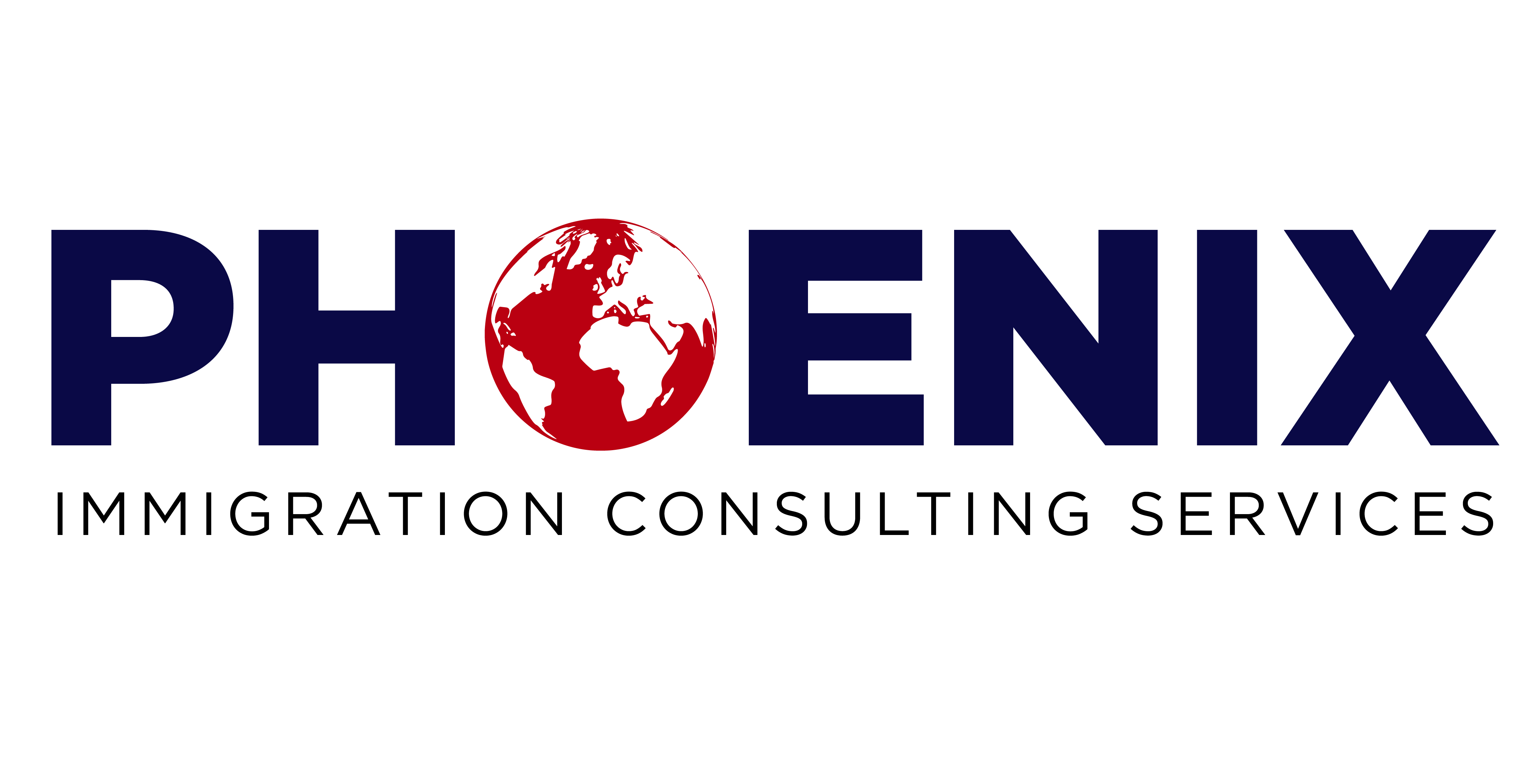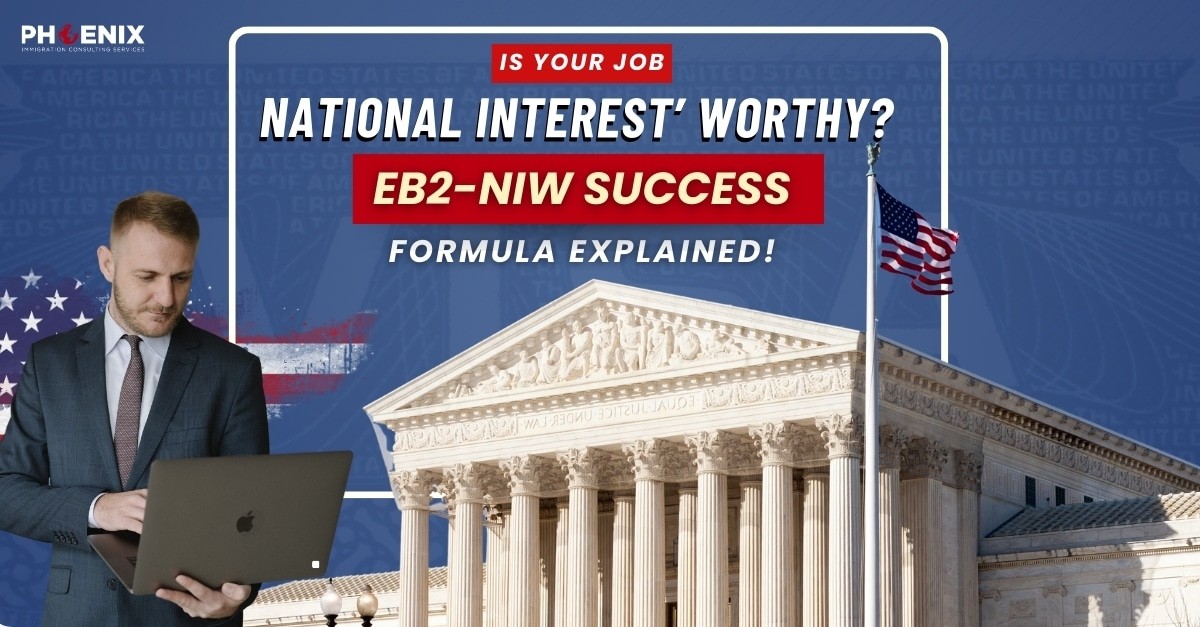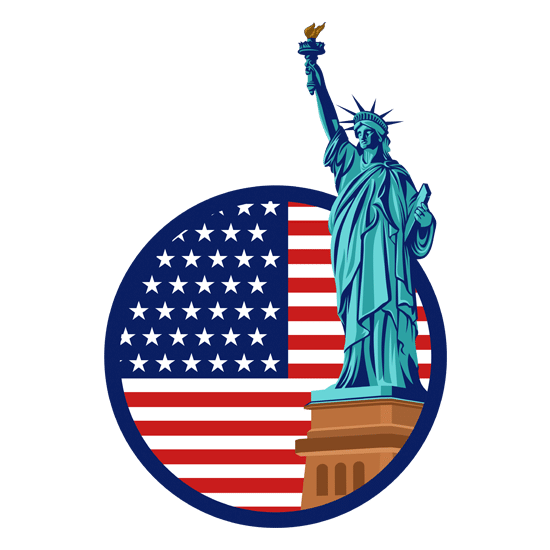Is Your Job ‘National Interest’ Worthy? EB2NIW Success Formula Explained!
Introduction: Why the EB2NIW Matters for Professionals from Pakistan and India
If you are a professional from India or Pakistan looking to establish a long term future in the U.S. without employer sponsorship or navigating the H1B lottery, then the EB2 National Interest Waiver (EB2NIW) could be your ideal solution.
The U.S. has increasingly welcomed international specialists across critical sectors STEM (Science, Technology, Engineering, Mathematics), healthcare, finance, renewable energy, and public health. However, here’s the twist: under the National Interest Waiver, you don’t need a job offer or labor certification as long as your work demonstrably benefits the United States.
This is a game-changer for Pakistani and Indian professionals, particularly researchers, engineers, IT specialists, medical doctors, policy analysts, and business owners. The NIW offers a faster, self-sponsored route to U.S. permanent residency, especially given the worsening backlogs for Indian nationals stuck in decades-long EB2/EB3 green card queues.
But there’s a catch not every skilled professional qualifies. You must demonstrate that your work has a significant positive impact on the U.S. economy, public welfare, education, or technology. In short, your contributions must extend beyond personal career gains.
As a professional from South Asia, you are part of a region known for its vast human capital. U.S. immigration policies reflect this appreciation particularly when your skills help meet national needs, like solving the healthcare workforce shortage, advancing AI innovation, or building resilient infrastructure.
This is where the EB2NIW excels. It provides a dual-purpose pathway: professional growth for you and national benefit for America a genuine win-win scenario.
If you’re wondering, “Is my job really in national interest?” or “Do I qualify for the NIW petition?”, this guide will walk you through the success formula, manage your expectations, and help you decide your best course forward.
👉 According to USCIS, one of the key EB2-NIW requirements is that the individual must be capable of “benefiting the United States to a substantially greater extent than others in the same field.”
In the next section, we’ll break down what EB2NIW really is and why it’s more important than ever for driven professionals like you.
1. EB2NIW vs Regular EB2: What's the Real Difference?
Understanding the difference between EB2NIW and regular EB2 is critical when evaluating U.S. immigration pathways for highly skilled professionals. Both are sub-categories of the Employment-Based Second Preference (EB2) visa category, but the paths toward permanent residency differ significantly in terms of requirements, eligibility, and processing time.
To help you understand how EB2NIW and Regular EB2 compare, here’s a side-by-side breakdown of the key distinctions:
1. Job Offer Requirement
- Regular EB2: Requires a formal job offer from a U.S. employer. The employer must submit a petition and complete the PERM Labor Certification process to prove that no qualified U.S. workers are available for the position. This step is often time-consuming and adds complexity to the process.
- EB2NIW: Does not require a job offer. You can self-petition without needing an employer, giving you greater freedom to pursue work independently or change employers as long as your work serves the national interest.
2. Labor Certification (PERM) Requirement
- Regular EB2: Labor certification is mandatory. The employer must undergo the PERM process, proving that hiring a foreign national does not negatively impact U.S. workers. This adds several months or even years to the timeline and involves extra paperwork and costs.
- EB2NIW: PERM labor certification is waived. You must show that your work is of national importance and justifies skipping the labor market test, thereby accelerating the process.
3. Eligibility Criteria
- Regular EB2: Requires an advanced degree (e.g., Master’s or PhD) or exceptional ability in your field, and an employer willing to sponsor your petition.
- EB2NIW: Also requires an advanced degree or exceptional ability, but you must further demonstrate that your work has substantial merit, is of national importance, and that waiving the job offer and labor certification benefits the U.S. more than following the standard process.
4. Employment Flexibility
- Regular EB2: Ties you to a specific employer. Changing jobs mid-process often requires restarting or modifying the petition, causing delays.
- EB2NIW: Offers freedom. As long as your work continues to benefit the U.S., you can switch employers, freelance, or start your own venture without impacting your petition.
5. Who Should Choose Which Path?
- Regular EB2: Ideal for individuals who already have a job offer and are comfortable going through labor certification. It suits professionals aiming to work with established U.S. employers despite the longer timeline.
- EB2NIW: Best for professionals with a track record of exceptional work in nationally significant fields like healthcare, technology, engineering, education, or entrepreneurship. It’s particularly helpful for those who want to bypass employer sponsorship and maintain career flexibility.
2. The Three Pillars of a Strong NIW Case (NIW Eligibility Criteria)
To achieve success with an EB2NIW petition, it is necessary to align your profile with the “three pillars” of eligibility outlined by USCIS under the Matter of Dhanasar decision (2016). These pillars form the foundation of a strong National Interest Waiver (NIW) case and must be addressed clearly and convincingly in your petition.
Here’s a breakdown of the three core criteria:
1. Substantial Merit and National Importance
This is the foundational pillar of any EB2NIW case. USCIS wants to determine whether your work adds real economic, scientific, or societal value to the United States beyond benefiting a single employer or organization.
Substantial Merit: Your work should contribute to your professional field such as science, healthcare, engineering, public interest, education, energy, or technology.
National Importance: Your contributions should impact broader U.S. interests. For example:
- Public health innovations or pandemic response strategies
- National security, AI, and tech development initiatives
- Advancements in infrastructure, education, or environmental protection
Tip for Pakistani and Indian professionals: If you are involved in telemedicine, AI, renewable energy, medical diagnostics, cybersecurity, or public policy, your field likely qualifies under national importance.
2. You Are Well Positioned to Advance the Proposed Endeavor
This criterion assesses whether you have the education, experience, and professional achievements to succeed in the work you propose to carry out in the U.S.
Supporting evidence includes:
- Advanced degrees (Master’s, PhD) and technical certifications
- Peer-reviewed publications, patents, or funded research projects
- Letters of recommendation from recognized experts or organizations
- Documented prior success or recognition in your field
You don’t need to be a Nobel laureate, but you should demonstrate a consistent and recognized record of achievement in your specialty.
Pro Tip: Letters from U.S.-based peers, universities, NGOs, or ex-employers significantly strengthen Pakistani and Indian applications.
3. In Waiving a Job Offer and Labor Certification, It Is Overall Advantageous to the U.S.
This final pillar argues that the U.S. benefits more by waiving the traditional job offer and labor certification steps than by enforcing them in your case.
Key justifications:
- Your work offers immediate and widespread impact
- Your contribution is time sensitive and cannot be delayed by bureaucratic hurdles
- Allowing you to self petition serves national goals better than waiting for employer sponsorship
For example, a Pakistani innovator in rural health tech can deploy diagnostics tools nationally without being bound to one hospital or employer thus delivering value directly and urgently.
📄 USCIS Reference: Dhanasar Framework (Official USCIS PDF)
3. Is Your Job in the National Interest of the U.S.? Here’s How to Tell
Asking the right questions before filing an EB2NIW petition can be a make or break decision for many professionals. One of the most common questions is: “Is my work really in the national interest of the United States?”
This is a valid concern especially since every stage of the EB2NIW application requires a clear demonstration of how your professional contributions benefit the United States at a national level, not just a specific company.
Below are key indicators to help you assess whether your occupation meets the "national interest" standard.
1. Does the Work You Do Solve a National-Level Issue?
Ask yourself: Does my work help resolve a problem that affects large populations, national systems, or critical industries in the U.S.?
Here are sample fields that commonly qualify under this criterion:
- Healthcare: Doctors, pharmacists, or medical researchers focusing on cancer, infectious disease, rural health, or underserved communities.
- Technology: Professionals in AI, cybersecurity, fintech, software engineering, and digital infrastructure.
- Education: STEM educators, policy researchers, or developers working on nationwide curriculum improvements.
- Energy & Environment: Renewable energy experts, environmental scientists, and water resource engineers.
- Public Policy & Law: Professionals improving access to justice, social equity, and government transparency.
In general, if your work promotes public health, economic innovation, infrastructure development, or social well-being, it may qualify as being in the U.S. national interest.
2. Are You Creating Value Beyond a Single Employer?
The EB2 National Interest Waiver is about your personal contributions not the success of your employer. USCIS looks for national or industry-wide impact, not just intra company performance.
You may qualify if:
- Your work has been cited in national or international journals or has influenced best practices in your field.
- You’ve created technology, products, platforms, or initiatives that serve communities or entire industries.
- Your work contributes to government prioritized sectors like national security, public health, or advanced manufacturing.
Example: A Pakistani software engineer developing AI tools for early disease detection doesn’t need to work at a U.S. hospital. Their tools can improve public health outcomes nationwide even if used remotely.
3. Are There U.S. Government Priorities That Align With Your Work?
One of the strongest ways to position your work as nationally significant is to match it with U.S. government priorities and research goals. Review these government agencies for strategic focus areas:
- National Science Foundation (NSF)
- U.S. Department of Energy
- White House Office of Science and Technology Policy
- COVID-19 Research and Innovation
If your field aligns with these governmental priorities such as clean energy, biotech, telemedicine, AI, or climate resilience your EB2NIW case will likely be stronger and better supported with external evidence.
4. Professions That Commonly Qualify for EB2NIW
Not all occupations are eligible for an EB2 National Interest Waiver (NIW), but certain fields such as healthcare, engineering, technology, research, and education are widely recognized for their national importance to the United States.
If you're a seasoned professional from India or Pakistan and work in any of the following domains, you likely have a strong profile to support an NIW petition. Below are common professions that receive favorable USCIS decisions due to their direct impact on U.S. federal priorities.
1. Healthcare Practitioners and Professionals
Examples include:
- Physicians (especially in rural health and primary care)
- Pharmacists
- Dentists
- Clinical researchers
- Public health experts
- Epidemiologists
Why it qualifies: The U.S. has a long standing shortage of healthcare providers, especially in rural and underserved communities. Professionals who contribute to disease control, healthcare delivery, and public health planning are seen as vital to the nation’s well-being.
Example: A Pakistani physician trained in telemedicine and conducting infectious disease research is an ideal EB2NIW candidate due to their immediate utility in national health systems.
2. Engineers and Infrastructure Experts
Examples include:
- Civil, Electrical, Mechanical, and Structural Engineers
- Urban Planners
- Environmental Engineers
Why it qualifies: America’s investment in clean energy, smart cities, and resilient infrastructure creates a demand for professionals who design and manage sustainable projects vital to national growth and safety.
3. Technology and IT Professionals
Examples include:
- Artificial Intelligence (AI) Specialists
- Software Developers
- Cybersecurity Analysts
- Data Scientists
- Blockchain Experts
Why it qualifies: Tech professionals driving innovation in national defense, public safety, financial systems, or critical infrastructure support the national interest. Their work ensures both economic and digital security.
Pro Tip: If your work has been implemented in public health systems, government contracts, or multinational platforms even remotely mention this in your petition.
4. Scientists and Researchers
Examples include:
- Biomedical Researchers
- Climate Scientists
- Physicists
- Chemists
- Academic Faculty in STEM
Why it qualifies: The U.S. prioritizes scientific innovation. If you’ve contributed through publications, patents, or advanced experiments in high priority sectors, your role aligns with national competitiveness and policy goals.
5. Educators and Policy Experts
Examples include:
- Professors or teachers in STEM and public policy
- Instructional Design Experts
- Education Technology Innovators
- Think Tank Contributors
Why it qualifies: U.S. education, especially in underserved and STEM-critical regions, is a national priority. Professionals contributing to systemic reform, curriculum design, or educational equity strengthen their NIW case.
6. Renewable Energy and Environmental Experts
Examples include:
- Engineers working on solar, wind, or geothermal energy
- Sustainability Consultants
- Climate Change Adaptation Specialists
- Water Resource Engineers
Why it qualifies: As the U.S. accelerates its shift to clean energy and environmental resilience, professionals who help reduce carbon footprints or increase climate resilience contribute directly to federal sustainability targets.
5. Real-Life EB2NIW Success Stories (South Asians Who Made It)
Although it may seem like a complicated immigration pathway, the EB2 National Interest Waiver (NIW) has helped thousands of Indian and Pakistani professionals earn their U.S. green cards each year without needing an employer sponsor or job offer.
The key? You don’t need a Nobel Prize just the ability to demonstrate that your work supports U.S. national interests. Below are real-world examples of EB2NIW petitions that were approved, highlighting how individuals from South Asia have succeeded across fields.
Case 1: Data Scientist from India – AI for Public Safety
Background: A Bangalore-based Master’s graduate in Computer Science worked remotely for a U.S. tech company, developing AI tools for emergency response systems.
- Implemented a predictive model used by emergency services in three U.S. cities
- Published two peer-reviewed papers in IEEE journals
- Obtained strong letters of recommendation from U.S.-based professors and industry leaders
- Demonstrated direct contribution to national public safety systems
Outcome: EB2NIW approved without an RFE (Request for Evidence)
Case 2: Pharmacist from Pakistan – Healthcare Access Advocate
Background: A Pharm.D. graduate from Karachi worked with a U.S. NGO, focusing on equitable medication access for underserved populations.
- Led public education campaigns for low-income communities
- Drafted healthcare policy proposals alongside American nonprofits
- Contributed to pharmacy service expansion in rural areas
- Addressed systemic health inequities through direct field work and outreach
Outcome: EB2NIW approved within 6.5 months
Case 3: Civil Engineer from India – Infrastructure Modernization
Background: A senior engineer from Delhi with expertise in sustainable transportation consulted for U.S. infrastructure firms.
- Designed cost effective transportation systems used in U.S. Midwestern states
- Member of the American Society of Civil Engineers (ASCE)
- Published white papers and spoke at international infrastructure forums
- Provided measurable improvements to U.S. transportation safety goals
Outcome: EB2NIW approved after one RFE for additional impact clarification
Case 4: Environmental Scientist from Pakistan – Water Management Innovation
Background: A Lahore-based Ph.D. holder specialized in U.S. focused drought and water resource management strategies.
- Published multiple papers on U.S. drought response and water efficiency
- Partnered with U.S. universities on climate adaptation strategies
- Research cited by American environmental agencies
- Aligned his work with U.S. federal goals for environmental sustainability
Outcome: EB2NIW granted via premium processing (after 2022 introduction)
6. Documents You’ll Need: The NIW Petition Checklist
The EB2 National Interest Waiver (NIW) is a self-petition category that enables skilled professionals from India and Pakistan to obtain U.S. green cards without a job offer or employer sponsorship.
Contrary to popular belief, you don’t need to win a Nobel Prize to qualify. You must simply demonstrate that your work aligns with the national interests of the United States. Below are real-life examples of South Asians who successfully met this requirement.
Case 1: Data Scientist from India – AI for Public Safety
Background: A data scientist from Bangalore with a Master’s in Computer Science worked remotely for a U.S.-based startup building AI-powered emergency response systems.
- Developed a predictive model used by emergency response departments in 3 U.S. cities
- Published peer-reviewed research in two IEEE journals
- Included strong letters of support from U.S. professors and tech executives
- Showed that AI tools reduced public safety risks, aligning with national priorities
Outcome: EB2NIW granted without RFE
Case 2: Pharmacist from Pakistan – Healthcare Access Advocate
Background: A Pharm.D. graduate from Karachi working with a U.S.-based NGO focused on improving medication access in underprivileged communities.
- Created health education campaigns for low-income U.S. populations
- Co-authored public health policy proposals with U.S. nonprofits
- Funded research to expand pharmacy services in rural America
- Demonstrated alignment with national public health goals and access equity
Outcome: EB2NIW approved within 6 months
Case 3: Civil Engineer from India – Infrastructure Modernization
Background: A self employed civil engineer from Delhi specialized in sustainable bridge and road systems, consulting for U.S. firms.
- Designed cost effective travel infrastructure used in Midwestern U.S. states
- Member of the American Society of Civil Engineers (ASCE)
- Presented technical papers on U.S. infrastructure development at online forums
- Proved impact on national transportation and safety objectives
Outcome: EB2NIW granted after one RFE for supplemental evidence
Case 4: Environmental Scientist from Pakistan – Water Management Innovation
Background: A Ph.D. holder from Lahore focused on drought and water resource challenges in the U.S. context.
- Published multiple U.S. specific water scarcity and climate research papers
- Collaborated with American universities on climate adaptability projects
- Research cited by U.S. environmental agencies and nonprofits
- Aligned work with U.S. environmental sustainability goals
Outcome: EB2NIW granted with premium processing (post-2022)
7. Can You Apply Without an Attorney? Pros and Cons for EB2NIW Applicants
Many Pakistani and Indian professionals pursuing the EB2 National Interest Waiver (NIW) pathway ask, “Is hiring an immigration attorney mandatory?” The answer is no. You are not legally required to use a lawyer for your EB2NIW self-petition. However, deciding whether you should depends on your confidence, case complexity, and familiarity with legal documentation.
Advantages of Applying Without an Attorney
- Cost-Free: Immigration attorney fees can range from $3,000 to $7,000+, depending on location and complexity. Handling your own petition lets you save on legal fees while covering costs like transcript evaluations and premium processing independently.
- Autonomy: Self-filing gives you full control over your petition. You decide which documents represent your professional contributions best and how to organize your evidence.
- Self-Education: Going through the EB2NIW criteria like the Matter of Dhanasar framework yourself enhances your knowledge of U.S. immigration law, which may be useful in future relocations or when helping others immigrate.
- Access to Online Communities: DIY EB2NIW applicants from South Asia often share templates, petition samples, and step-by-step checklists on helpful platforms such as:
Disadvantages of Applying Without an Advocate
- Understanding Legal Nuances: EB2NIW may be self-partitionable, but it still demands legal structuring. Mistakes in evidence formatting or vague language can lead to RFEs (Request for Evidence) or outright denials.
- Difficulty in Framing “National Interest”: Accurately presenting how your work benefits the U.S. as a whole beyond a company or research team requires legal articulation. Immigration attorneys specialize in crafting such compelling arguments.
- Time Intensive Process: Creating I-140 packets including cover letters, exhibits, and reference letters can take over 100 hours. If your legal writing and technical writing skills differ, preparation becomes even more demanding.
- Risk of Application Denial: Overlooking simple items like missing translations or unlabeled exhibits can stall your application. Self-filers without legal oversight face greater chances of avoidable delays and errors.
When to Consider Hiring an Attorney
You may want to consult a qualified EB2NIW attorney if:
- Your occupation is nontraditional or doesn’t clearly align with national interest categories (e.g., AI, climate science, healthcare)
- You have few publications or limited third party evidence
- You struggle with legal writing or petition strategy
- You’ve previously faced denial or RFEs from USCIS
- You lack the time for document preparation and need premium processing efficiency
8. EB2NIW with Family: What About Spouse and Kids?
Who is Considered a Dependent?
According to U.S. immigration law, eligible dependents include:
- Your legally married spouse
- Unmarried children under the age of 21
Once your Form I-140 is approved, your family may be issued dependent immigrant visas E21 for spouses and E22 for children as long as immigrant visa numbers are available.
Advantages for Your Partner
Once your EB2NIW green card is approved, your spouse will benefit from:
- Permanent residency (Green Card) status
- The ability to work legally in the U.S. without needing a separate visa like H-4 EAD
- Access to college or graduate school at in state tuition rates
- The right to travel internationally and re-enter the U.S. with permanent resident privileges
Note: If you’re already in the U.S. on a visa such as H1B or F1, your spouse may apply for adjustment of status (Form I-485) along with you if eligible.
Advantages for Minors
Your children under 21 will also receive several benefits:
- Permanent residency as dependents of the principal applicant
- Enrollment in public elementary, middle, and high schools
- Eligibility for in-state tuition and financial aid when applying to U.S. universities
- Access to healthcare and other social support systems available to legal residents
⏳ Important Reminder: Children must apply before they turn 21. If they age out, they may no longer qualify unless protected by the Child Status Protection Act (CSPA).
What If You're Outside the U.S.?
If you’re applying via consular processing, once your EB2NIW is approved and a visa number becomes available, your family must:
- Submit a separate DS-260 form for each member
- Complete the required medical exams
- Attend interviews at a U.S. Embassy or Consulate
- Receive immigrant visas allowing entry to the United States
Major consulates processing EB2-based immigrant visas include those in Islamabad, Karachi, Mumbai, Chennai, and New Delhi.
Need Guidance on Your EB2NIW Journey?
At Phoenix Immigration Consulting Services, we specialize in helping Indian and Pakistani professionals like you evaluate eligibility, prepare documentation, and maximize your chances of approval all without unnecessary legal costs.
- ✅ Free Profile Assessment
- ✅ Strategic Petition Planning
- ✅ Expert Support from Start to Finish





Leave a Reply
Your email address will not be published.